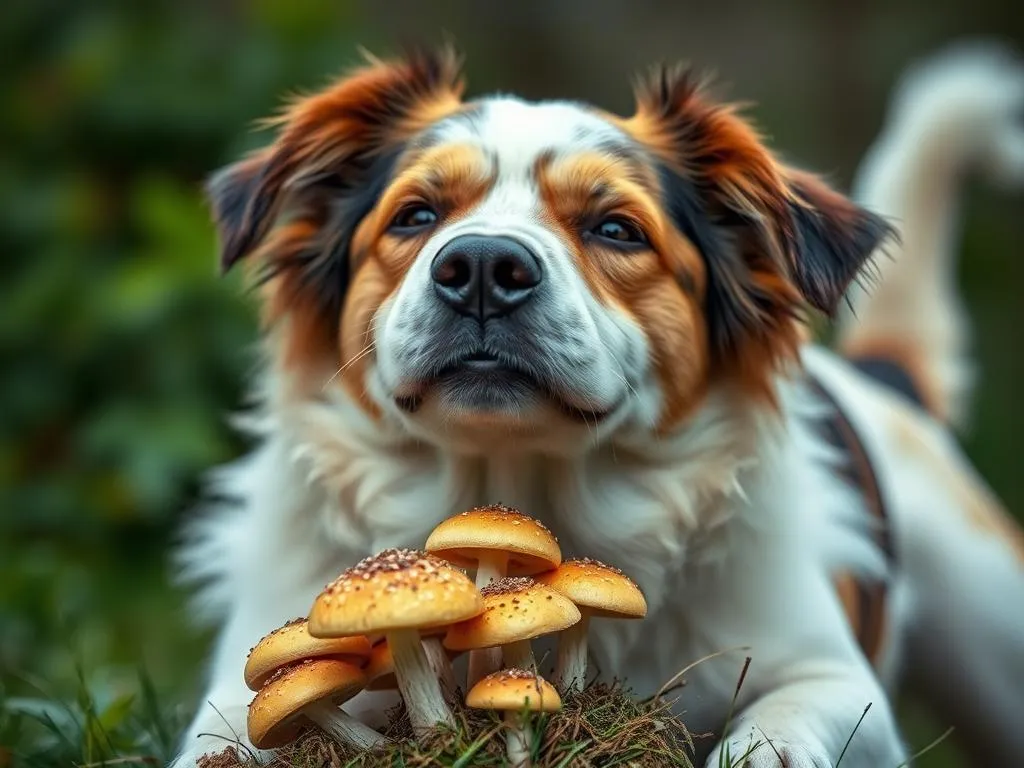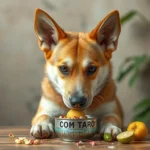
Introduction
Proper nutrition is vital for maintaining the overall health and well-being of dogs. Just like humans, dogs require a balanced diet that provides essential nutrients to support their growth, energy levels, and immune systems. As pet owners, it’s crucial to be informed about the foods we offer our furry friends, especially when it comes to items that we commonly consume ourselves, like mushrooms.
Mushrooms are a popular ingredient in many human diets, known for their versatility and health benefits. However, the question arises: can dogs eat mushrooms? This article will delve into the safety of mushrooms for dogs, exploring which types are safe, which should be avoided, and how to introduce them into your dog’s diet responsibly.
Understanding Dog Nutrition
The Basics of Dog Nutrition
Dogs require a variety of nutrients to thrive. Here are the essential components of a dog’s diet:
-
Proteins: These are the building blocks of your dog’s body, crucial for growth, maintenance, and repair of tissues. Protein sources include meat, fish, and some plant-based foods.
-
Fats: Fats provide energy and support cell structure. They also carry essential fatty acids that are vital for skin and coat health. Healthy fat sources include fish oil and chicken fat.
-
Carbohydrates: While not essential, carbohydrates can be a good source of energy. They are found in grains, vegetables, and fruits.
-
Vitamins and Minerals: These micronutrients are necessary for various bodily functions, including immune response, bone development, and nerve function.
Understanding these fundamentals helps pet owners make informed dietary choices for their dogs.
Common Dietary Needs by Dog Breed and Age
Nutritional needs can vary significantly based on factors such as breed, size, and age. For example, puppies require more protein and calories for growth, while senior dogs may need fewer calories and more fiber to aid digestion. Additionally, larger breeds may have specific dietary requirements to support joint health.
Consulting with a veterinarian can provide tailored advice based on your dog’s individual needs, ensuring they receive a balanced diet that promotes overall health.
The Mushroom Family
Types of Mushrooms
Mushrooms belong to a diverse family of fungi, and while many are safe to eat, some can be highly toxic. Here’s a brief overview of various types:
-
Edible Mushrooms: Common types include button, portobello, and shiitake. These mushrooms are safe for both humans and dogs in moderation.
-
Medicinal Mushrooms: Varieties like reishi and lion’s mane are celebrated for their health benefits, including immune support and cognitive enhancement.
-
Toxic Mushrooms: Certain species, such as Amanita phalloides (death cap), are extremely poisonous and can cause severe health issues in dogs.
Being aware of the different types of mushrooms is essential when considering their inclusion in your dog’s diet.
Nutritional Benefits of Mushrooms
Mushrooms are rich in vitamins and minerals that can be beneficial for dogs. Here are some key nutrients found in common edible mushrooms:
-
B Vitamins: Vital for energy metabolism and maintaining a healthy nervous system.
-
Selenium: An antioxidant that supports immune function and helps prevent cellular damage.
-
Copper: Important for red blood cell formation and iron absorption.
-
Beta-glucans: These compounds may boost the immune system and have anti-inflammatory properties.
Incorporating safe mushrooms into your dog’s diet can provide these nutritional benefits, promoting overall health.
Can Dogs Eat Mushrooms?
Safe Mushrooms for Dogs
Several mushrooms are considered safe for dogs to consume:
-
Button Mushrooms: These are commonly found in grocery stores and are safe when cooked.
-
Portobello Mushrooms: Rich in nutrients, these mushrooms can be a great addition to your dog’s meals when cooked.
-
Shiitake Mushrooms: Known for their health benefits, shiitake mushrooms are safe for dogs when prepared properly.
When preparing mushrooms for dogs, it’s essential to cook them thoroughly. Raw mushrooms can be harder to digest and may cause gastrointestinal upset. Cooking eliminates potential toxins and makes the mushrooms safer for your furry friend.
Toxic Mushrooms to Avoid
It’s crucial to know which mushrooms are toxic to dogs. Some common toxic varieties include:
-
Amanita phalloides (Death Cap): Can lead to severe liver and kidney damage.
-
Amanita muscaria (Fly Agaric): Can cause neurological symptoms and gastrointestinal distress.
-
Gyromitra spp. (False Morels): These can be fatal and cause severe gastrointestinal issues.
Signs of mushroom poisoning in dogs may include vomiting, diarrhea, lethargy, and seizures. If you suspect your dog has ingested a toxic mushroom, seek veterinary assistance immediately.
Expert Opinions on Feeding Mushrooms to Dogs
Veterinarians often have mixed opinions on whether to include mushrooms in a dog’s diet. Some emphasize the nutritional benefits of safe mushrooms, while others caution against feeding any mushrooms due to the risk of confusion with toxic varieties. It’s essential to consult with your veterinarian before introducing new foods, including mushrooms, to your dog’s diet.
Anecdotal evidence suggests that many dogs enjoy mushrooms and tolerate them well, provided they are safe and properly prepared. However, more research is needed to understand the long-term effects of mushroom consumption in dogs.
How to Introduce Mushrooms into Your Dog’s Diet
Tips for Feeding Mushrooms to Dogs
When considering adding mushrooms to your dog’s meals, keep these guidelines in mind:
-
Portion Sizes: Start with small amounts to see how your dog reacts. A few pieces of cooked mushroom mixed into their food is an excellent way to begin.
-
Frequency: Introduce mushrooms as an occasional treat rather than a staple of their diet. This helps prevent any digestive issues.
Suggested Recipes for Incorporating Safe Mushrooms into Dog Meals
Here are a couple of simple recipes to incorporate safe mushrooms into your dog’s diet:
Mushroom and Sweet Potato Mash
– Ingredients: 1 cup cooked sweet potato, 1/2 cup cooked button mushrooms.
– Instructions: Mash the sweet potato and mix in the chopped mushrooms. Serve as a nutritious side dish.
Chicken and Mushroom Stir-Fry
– Ingredients: 1 cup cooked chicken, 1/2 cup cooked shiitake mushrooms, 1/2 cup broccoli.
– Instructions: Sauté the mushrooms and broccoli in a pan, then add the cooked chicken. Allow to cool before serving.
Monitoring Your Dog’s Reaction
After introducing mushrooms, it’s essential to monitor your dog for any adverse reactions. Look for signs such as vomiting, diarrhea, or changes in behavior. If your dog shows any negative symptoms, discontinue feeding mushrooms and consult your veterinarian.
Alternatives to Mushrooms in Dog Nutrition
Other Vegetables and Fungi
If you’re hesitant about feeding mushrooms, several other vegetables and fungi are safe and nutritious for dogs:
-
Carrots: Great for dental health and low in calories.
-
Green Beans: High in fiber and vitamins while being low in calories.
-
Pumpkin: Excellent for digestion and can help with weight management.
-
Zucchini: A low-calorie vegetable that dogs often enjoy.
These alternatives can provide various nutritional benefits while keeping your dog’s diet diverse.
Homemade Dog Food Options
Preparing homemade meals can be a rewarding way to ensure your dog receives a balanced diet. Here are simple recipes that include safe ingredients:
Beef and Vegetable Stew
– Ingredients: 1 pound ground beef, 2 cups chopped carrots, 1 cup peas, 3 cups beef broth (no onions).
– Instructions: Cook the beef until browned, add vegetables and broth, and simmer until the veggies are tender. Cool before serving.
Chicken and Rice Bowl
– Ingredients: 1 cup cooked chicken, 1 cup cooked brown rice, 1/2 cup green beans.
– Instructions: Mix cooked chicken and rice, add chopped green beans, and serve once cooled.
Homemade meals allow you to control the ingredients and ensure your dog receives a nutritious diet while avoiding harmful additives often found in commercial dog foods.
Conclusion
In summary, while can dogs eat mushrooms is a question that requires careful consideration, many mushrooms are safe for dogs when prepared correctly. Understanding dog nutrition and the various types of mushrooms can help you make informed decisions about your dog’s diet. Always consult your veterinarian for personalized advice and monitor your dog’s reactions when introducing new foods.
By ensuring a balanced diet and exploring safe food options, you can contribute to your dog’s overall health and happiness. Remember, responsible feeding practices are key to nurturing your furry friend and maintaining their well-being.









